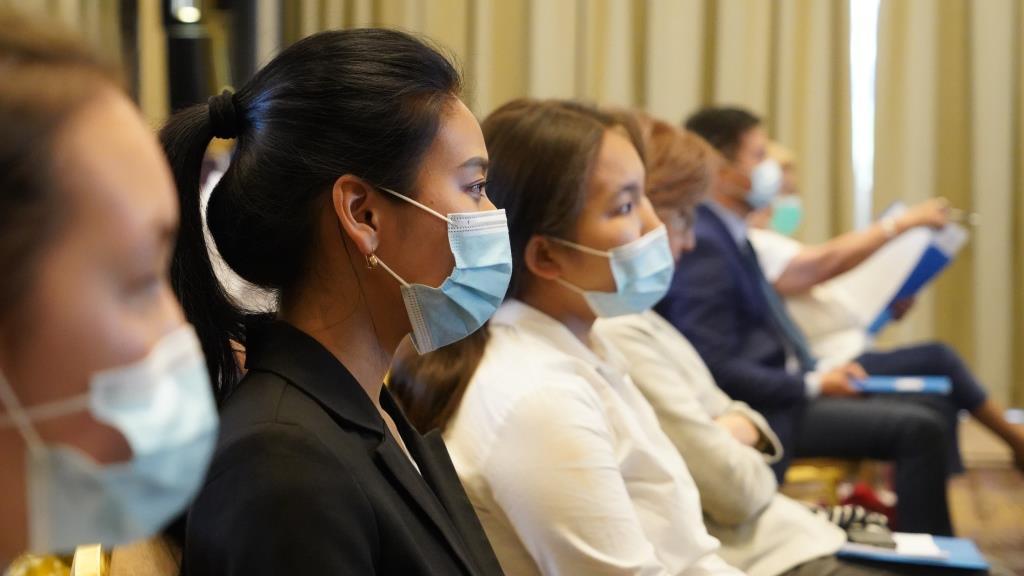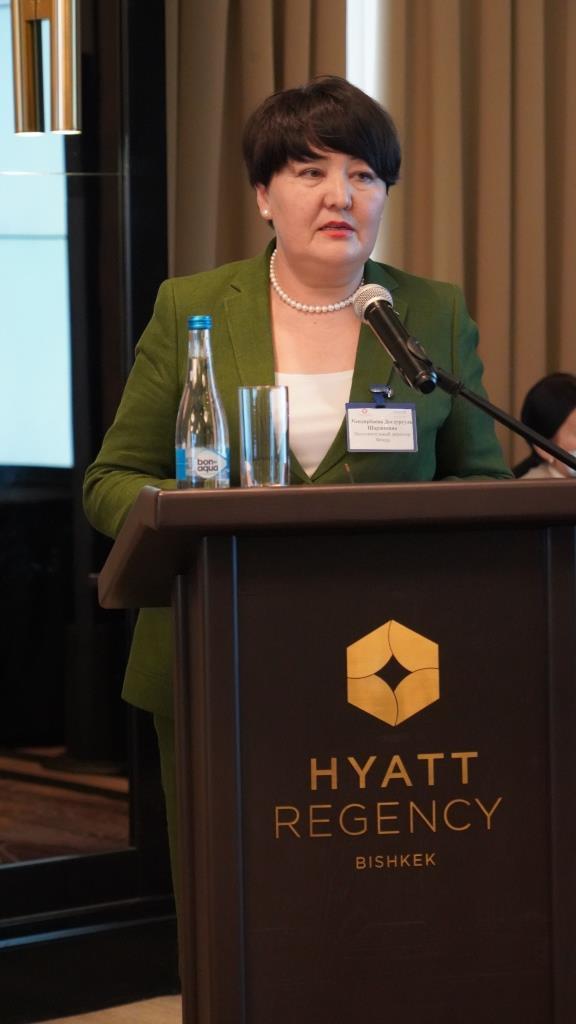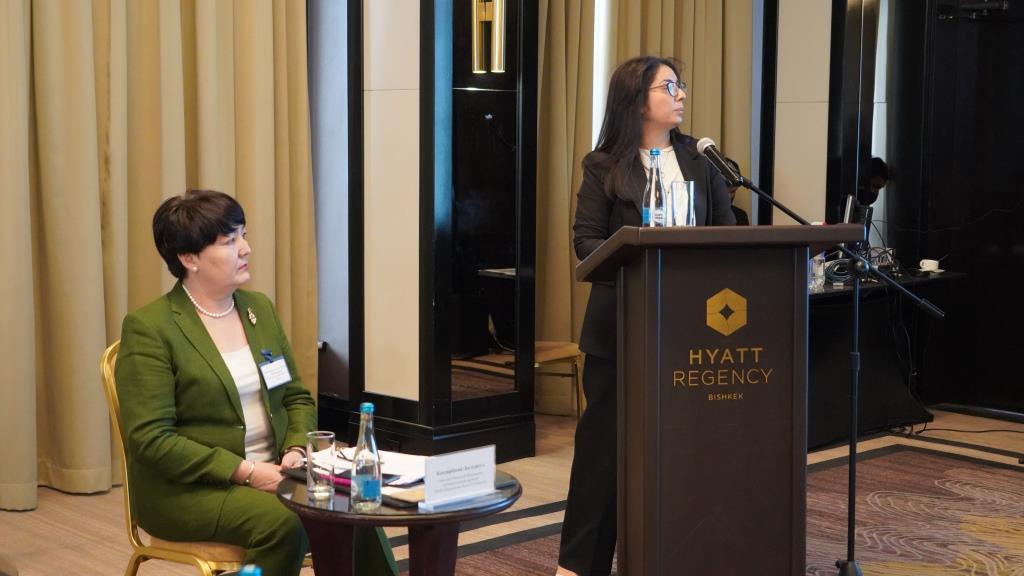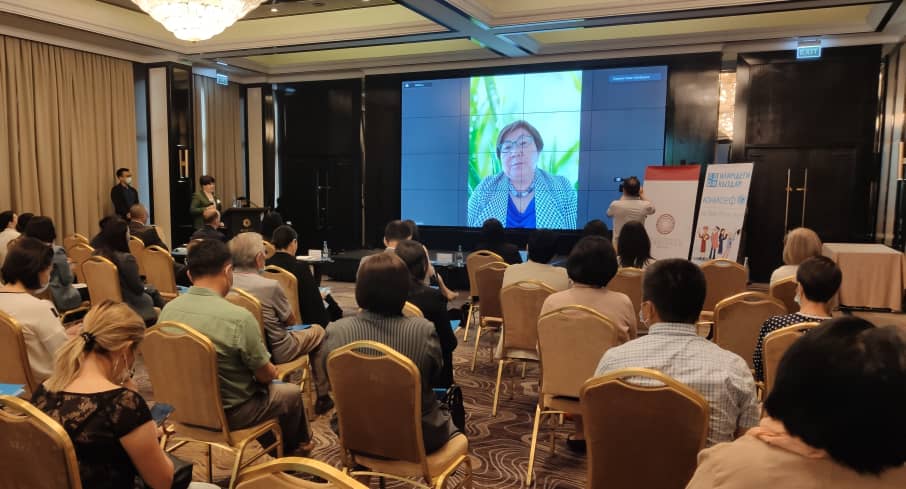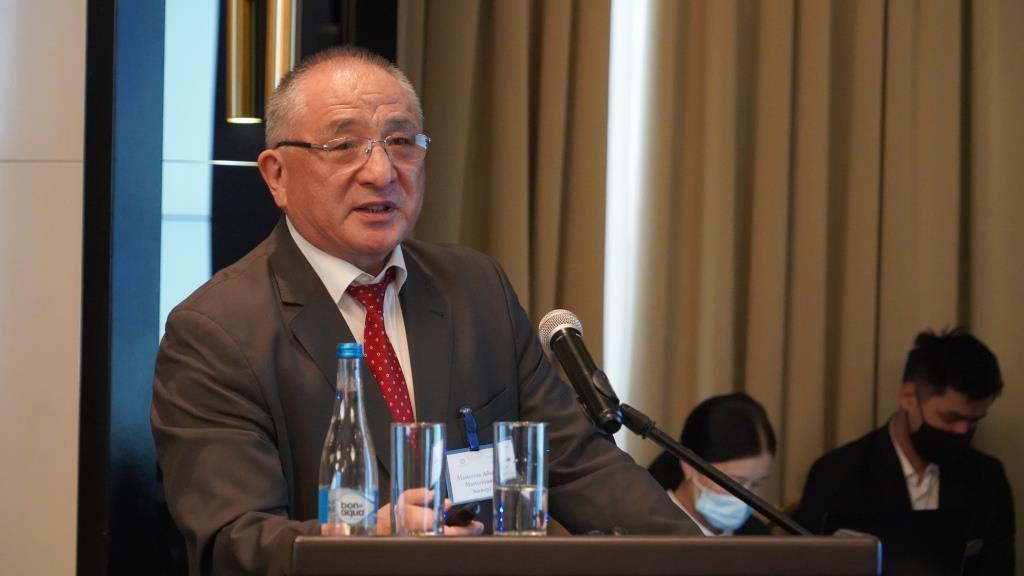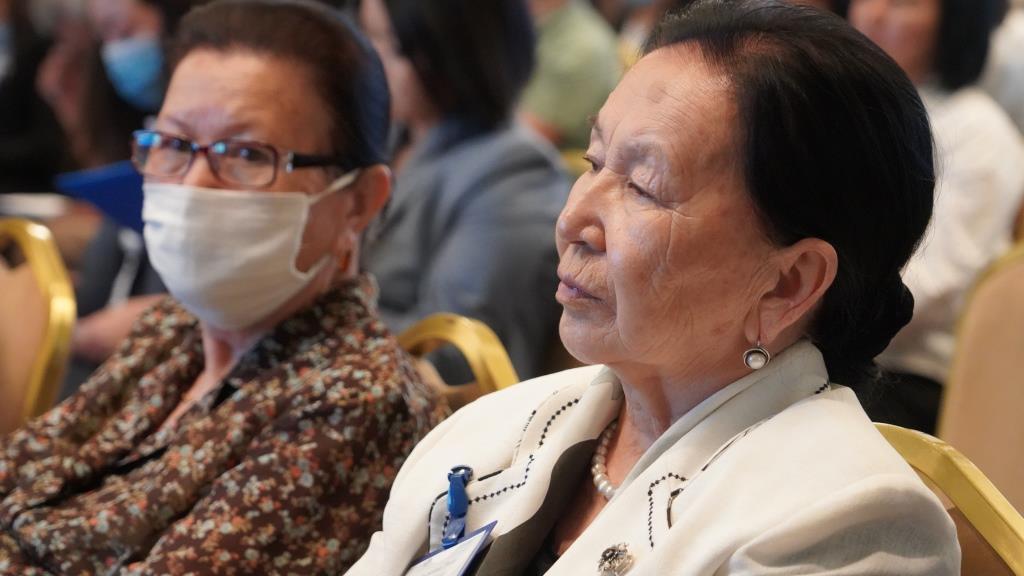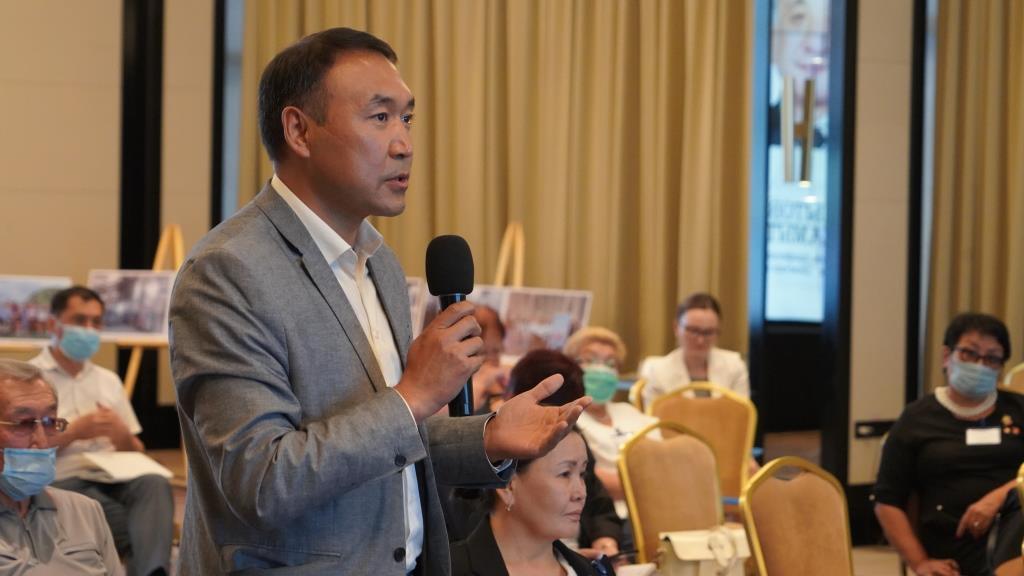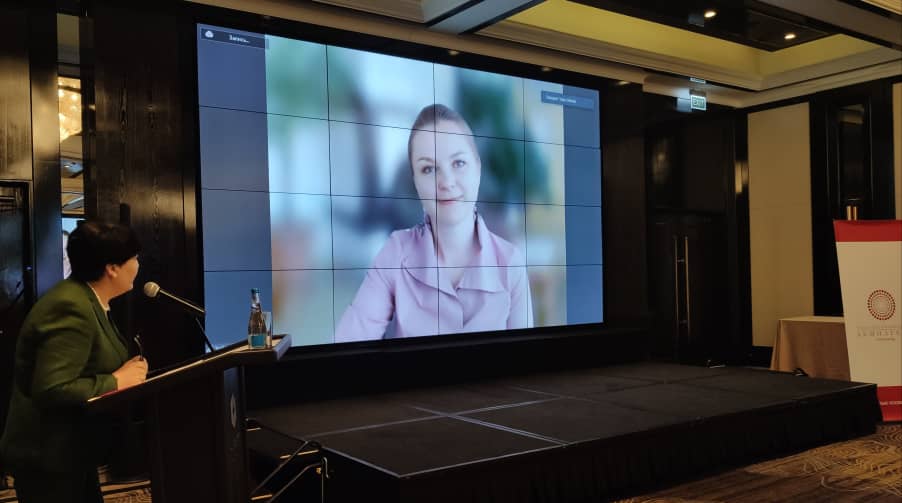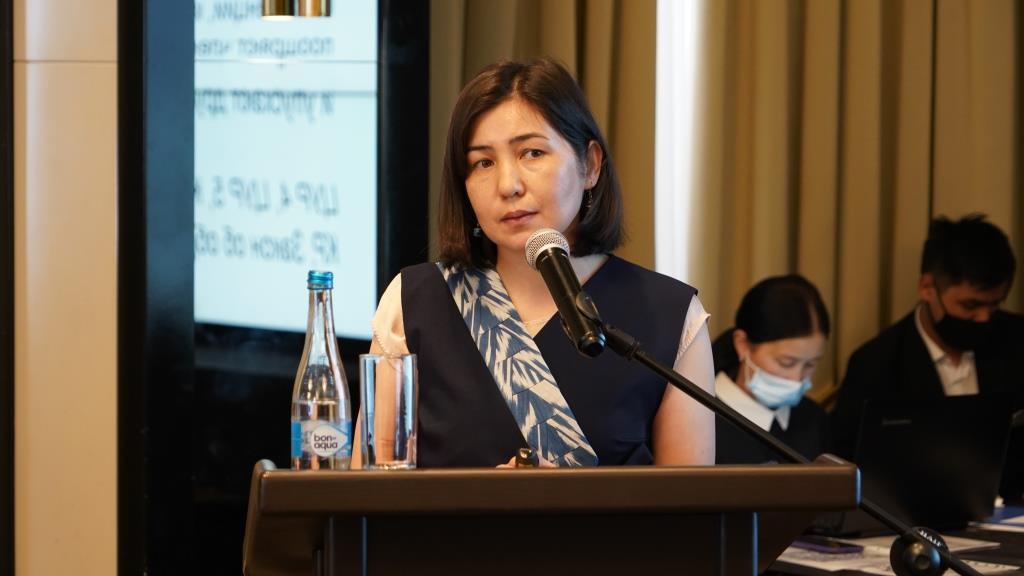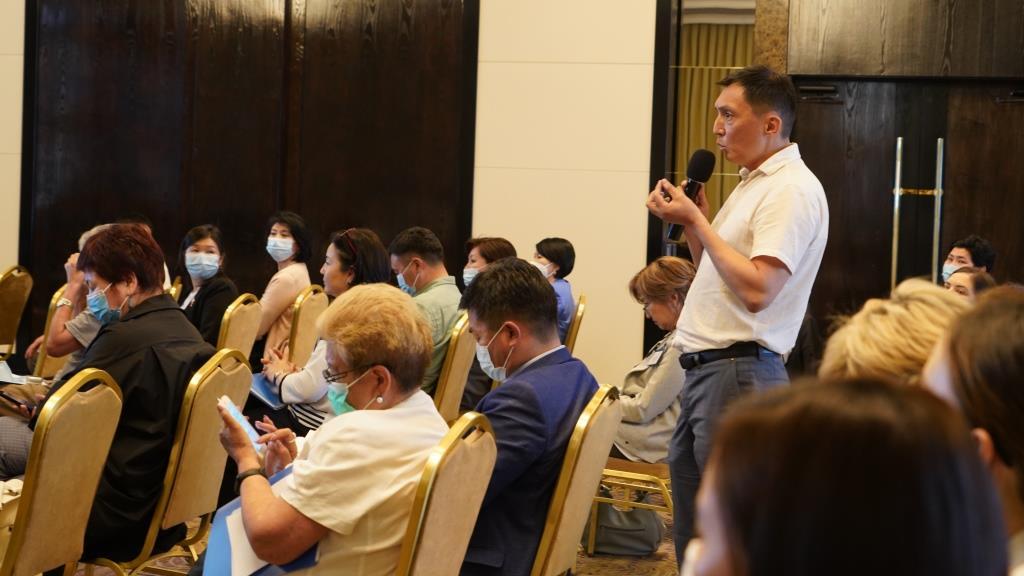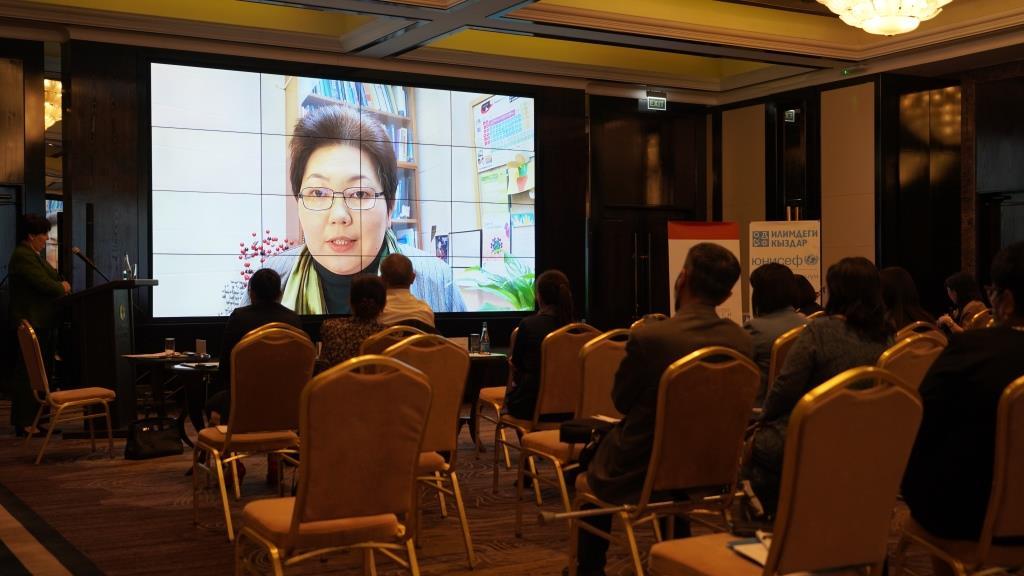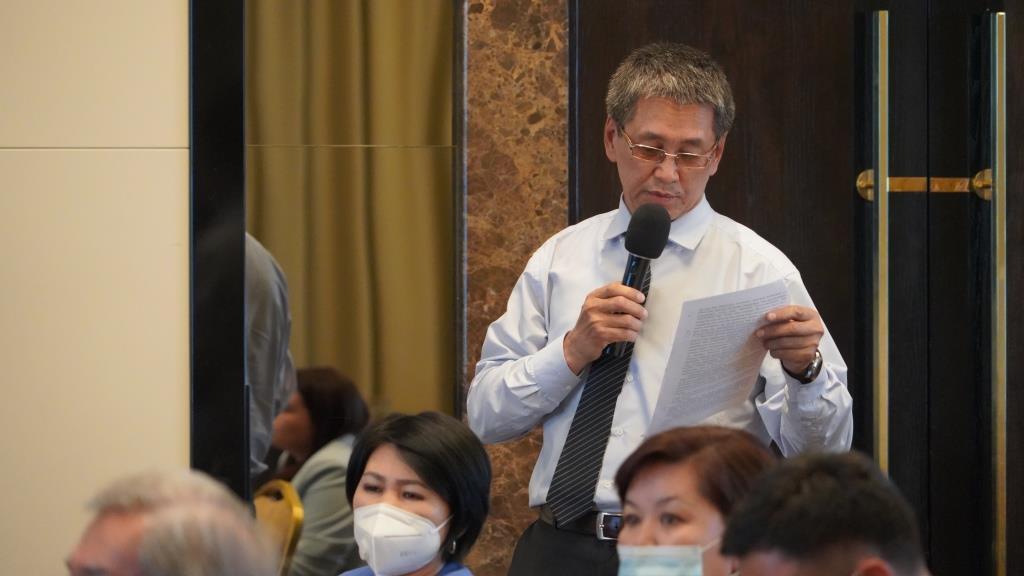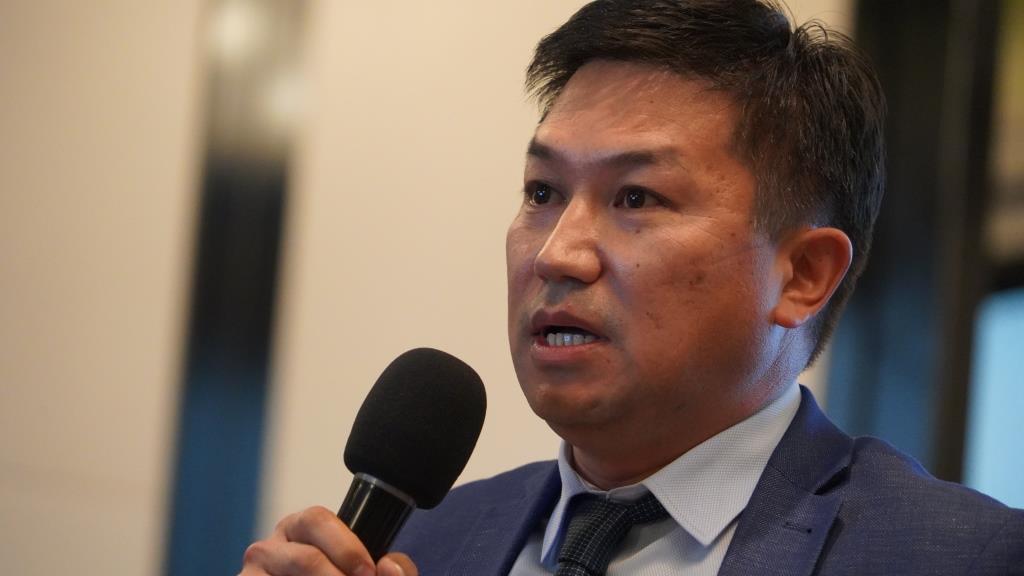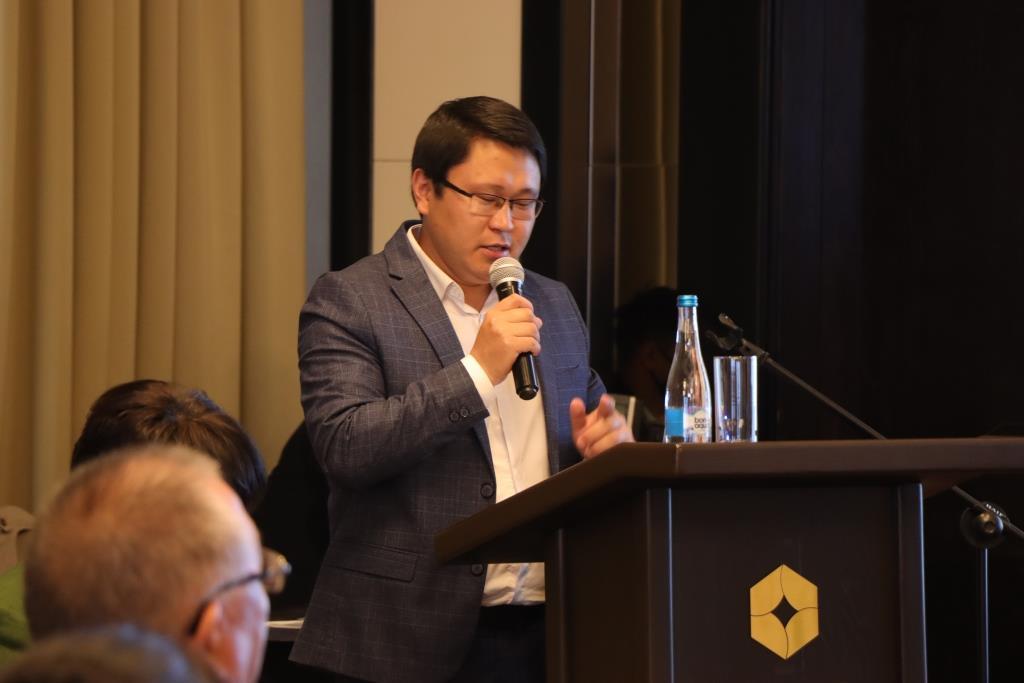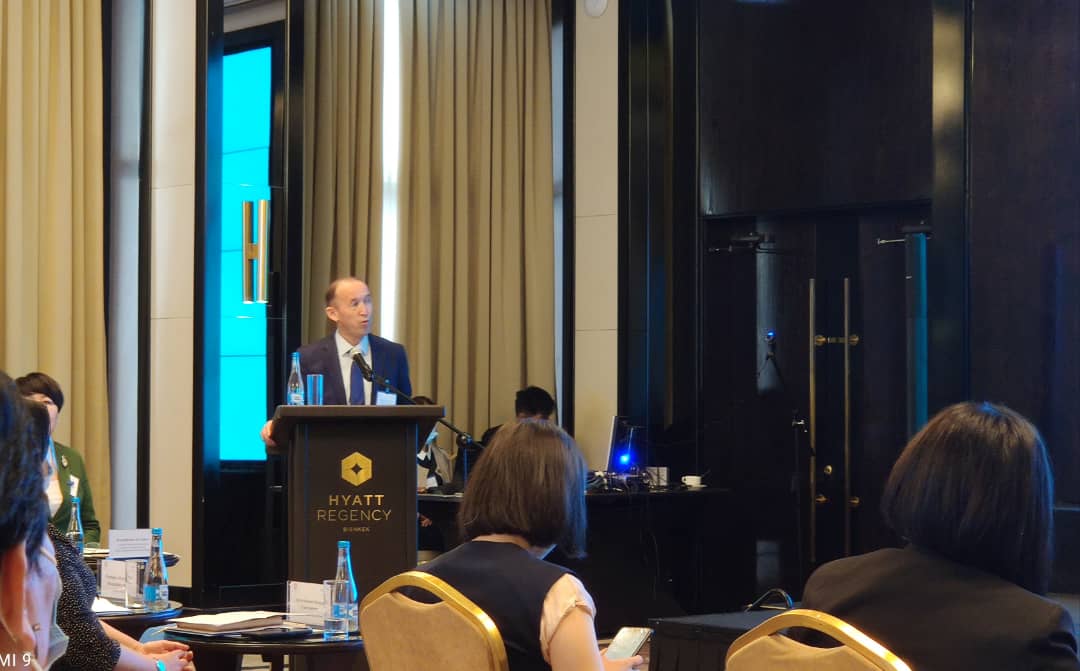The "Girls in Science" project presented the analysis of the role of STEM in state legal and regulatory acts
May 20, 2021, 05:39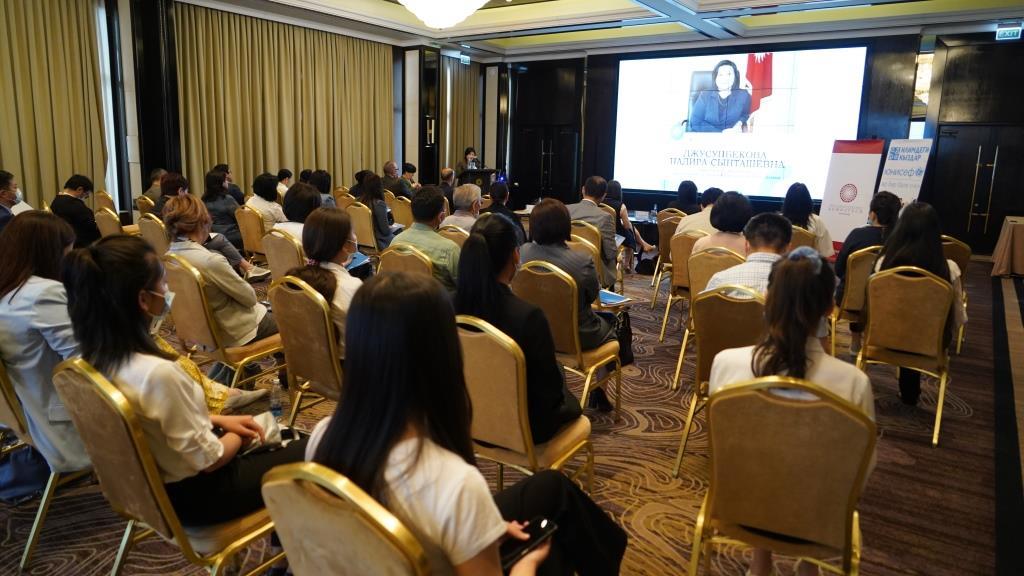
May 19, 2021, in the Hyatt Hotel "Shaiyr"
conference hall the "Roza Otunbayeva Initiative" International Public
Foundation conducted a round
table on the results and
recommendations of the implemented
activities within UNICEF "Girls in Science" project in part
"Education policy in Kyrgyz Republic and its analysis".
The analysis of the role of
STEM in national legislation and regulation were presented, and recommendations for
decision-making bodies in the field of education were given.
The event was attended by Roza
Otunbayeva, the former President of the Kyrgyz Republic, founder of the “Roza
Otunbayeva Initiative” International Public Foundation; Jyldyz Bakashova, Deputy
Chairman of the Cabinet of Ministers; Yulia Oleynik, UNICEF Deputy
Representative in Kyrgyzstan; Nadira Jusupbekova, Deputy Minister of Education
and Science of the Kyrgyz Republic; Abdyvakhab Nurbayev, Member of Parliament of
the Kyrgyz Republic. Asel Sartbaeva, a world-renown UK scientist and Goodwill
Ambassador of the “Girls in Science” project, also addressed the event with a
video message.
As part of the National
Development Strategy of the Kyrgyz Republic 2021-2040, the “Rosa Otunbayeva
Initiative” International Public Foundation, with support from UNICEF,
implements the “Girls in Science” project and initiatives to improve education
in general. As part of this project, an analysis was carried out to determine
the place of STEM in the following state regulations: Education Development
Strategy of the Kyrgyz Republic; the
Core Curriculum, educational and subject standards; STEM, and
occupations required by the labor market.
All these components were analyzed
and prepared with recommendations.
An analysis on maintaining
gender equality, employment and the situation on the labor market of the Kyrgyz
Republic, especially in the professions based on the exact sciences and
professions, has been carried out.
We would also like to report another
project partner, the Innovation College of the American University of Central
Asia, has developed gender-sensitive subject modules. These modules have
developed effective recommendations for enhancing professional skills of
teachers of the pilot school who teach science, and a special training for STEM teachers of the pilot school.
The round table discussed the
objectives of the “Girls in Science” project; education policy in the Kyrgyz Republic and its analysis; introduction of gender sensitive
pedagogy in textbooks and gender expertise against discrimination, as well as
the role of teachers in providing quality education and presentation of
possible ways to improve STEM teaching in schools. After these many considerations, a resolution was adopted at the
end of the work.
